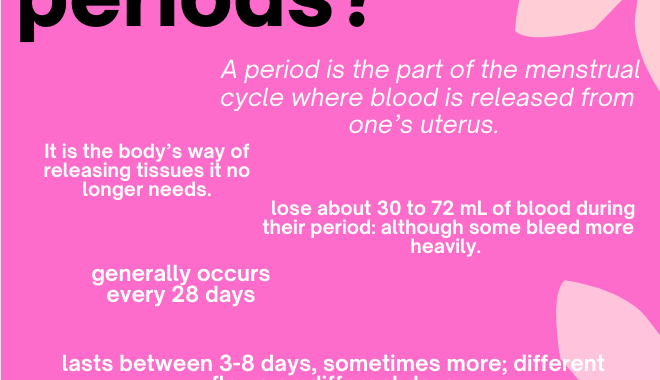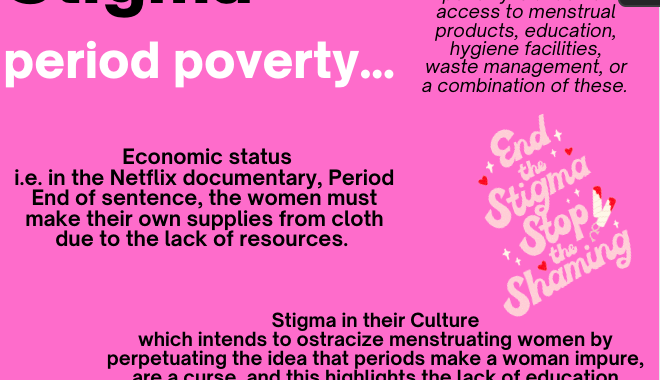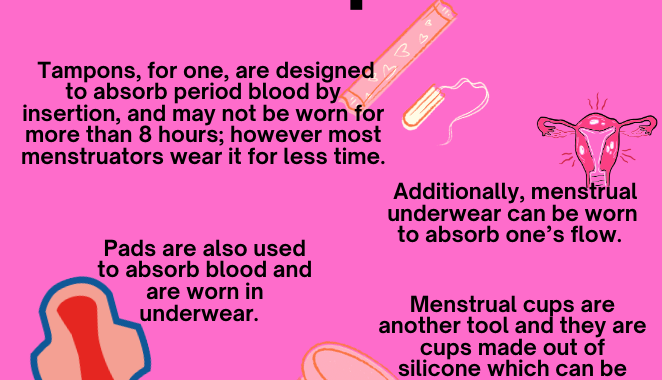MENSTRUAL EQUITY: It's Women's History Month. Let's Finally End Period Poverty.
- Alissar Dalloul
- Mar 9, 2023
- 3 min read
Period Poverty. Gender Equity. Menstruation. The Intrinsic Violation of A Girls' Right to Education.
What Are Periods?
A period is the part of the menstrual cycle where blood is released from one’s uterus; It is the body’s way of releasing tissues it no longer needs. A period lasts between 3-8 days, sometimes more, with different flows on different days, and it generally occurs every 28 days. During one's period, menstruators lose about 30 to 72 mL of blood — although some bleed more heavily. Cramping is the most commonly reported symptom.
What is needed for one’s period?
Tampons, for one, are designed to absorb period blood by insertion, and may not be worn for more than 8 hours; however most menstruators wear it for less time. Menstrual cups are another tool and they are cups made out of silicone which can be inserted and collect menstrual flow; generally, every 4-12 hours the cup is removed, cleaned, and reinserted.
Pads are also used to absorb blood and are worn in underwear. Additionally, menstrual underwear can be worn to absorb one’s flow.
The Period Stigma
In many countries there is a potential lack of access to sanitation supplies, which results in period poverty. In simplest terms, Period poverty is a lack of access to menstrual products, education, hygiene facilities, waste management, or a combination of these.
Economic status: i.e. in the Netflix documentary, Period End of sentence, the women must make their own supplies from cloth due to the lack of resources.
Stigma in their Culture: which intends to ostracize menstruating women by perpetuating the idea that periods make a woman impure, are a curse, and this highlights the lack of education surrounding this bodily function.
Taxes and lack of supplies at school
"a period is the end of a sentence, not the end of a girl’s education."
The notion that menstruation people are dirty or unclean results in absences in school, whether out of embarrassment or the inability to control their flow with insufficient resources. Let’s make note of the aforementioned statement. The fact that menstruators are unable to attend school due to lack of supplies, pain, or even the connotation of impurity due to a normal function, is quite alarming. This situation is namely due to the lack of knowledge regarding menstrual cycles, especially amongst laters, exacerbating the lack of discussion in government regarding a supposedly taboo topic.
So let’s talk about periods.
We have created a society in which menstruators are taught to feel less confident and dignified, and are too often considered less capable, simply because their bodies menstruate. This prevents conversation from occurring, resulting in Menstruators and Non menstruators not really knowing what a normal period is, and period poverty.
Let's Break Some Stigmas and Myths
Menstruating people function just as productively at work as other employees. There is no reason to equate someone’s productivity with their menstrual cycle. If someone is moody, that does not mean they are on their period. And flo day. Seriously? It’s called a period. North Carolina has a tax on tampons, but fraternity and sorority meals are untaxed. Pads, tampons, and other sanitary products are not a mere matter of choice, but a necessity. And the rising prices are in no way justifiable. Education and advocacy must occur and conversations need to happen.
DONATE.
https://www.gofundme.com/manage/ymk55r-end-period-poverty
... OR follow the instructions

ADVOCATE. Check out our website. Go to "Events" and "Resources" and use our already designed presentation to host a products drive!




















Comments